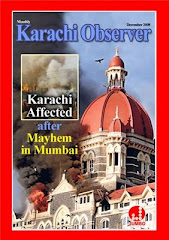
Militants in southwestern Pakistan kidnapped a UN official on Monday, killing his driver in the process, local police said.
Khalid Masood, a senior police official, identified the kidnapped man as John Solecki, an American who is the regional head of a United Nations refugee office — the UN High Commissioner for Refugees (UNHCR). He was abducted as he headed to work in Quetta, Masood said.
"Solecki has been serving in Quetta for more than two years," Masood told the Associated Press. "We cannot speculate on the motive behind the crime."
Solecki did not have a police escort while he was travelling, Masood said.
"We have learned that he usually did not like to have an escort with him on his way to the office," Masood said.
A UN official in Pakistan's capital, Islamabad, later confirmed Solecki had been abducted.
The gunmen reportedly opened fire on his vehicle, and the driver died later in hospital. Video footage from the scene showed a UNHCR vehicle crumpled into a brick wall and with at least one bullet hole in it.
No group has claimed responsibility for the abduction.
Kidnappings in southwest rare
Quetta is the capital of Baluchistan, a province that shares a border with Afghanistan. Southwestern Pakistan is the scene of a low-level insurgency driven by nationalist groups wanting more autonomy for Baluchistan province.
But unlike Taliban and al-Qaeda militants in the northwest, the Baluch groups are not known to target foreigners, and three police officials said they could not recall another foreigner being kidnapped in Quetta.
Abductions are more common in northwest tribal areas that border Afghanistan.
In November, web publisher Khadija Abdul Qahaar of West Vancouver was kidnapped in the northwest Bannu district. Her kidnappers have reportedly asked for a $150,000 ransom and the release of Taliban prisoners in Afghanistan.
The Taliban are believed to be responsible for the abduction months ago of two Afghan diplomats and two engineers, one Chinese and the other Polish. They were all kidnapped in the northwest and are still believed to be in custody. (CBC News)
Khalid Masood, a senior police official, identified the kidnapped man as John Solecki, an American who is the regional head of a United Nations refugee office — the UN High Commissioner for Refugees (UNHCR). He was abducted as he headed to work in Quetta, Masood said.
"Solecki has been serving in Quetta for more than two years," Masood told the Associated Press. "We cannot speculate on the motive behind the crime."
Solecki did not have a police escort while he was travelling, Masood said.
"We have learned that he usually did not like to have an escort with him on his way to the office," Masood said.
A UN official in Pakistan's capital, Islamabad, later confirmed Solecki had been abducted.
The gunmen reportedly opened fire on his vehicle, and the driver died later in hospital. Video footage from the scene showed a UNHCR vehicle crumpled into a brick wall and with at least one bullet hole in it.
No group has claimed responsibility for the abduction.
Kidnappings in southwest rare
Quetta is the capital of Baluchistan, a province that shares a border with Afghanistan. Southwestern Pakistan is the scene of a low-level insurgency driven by nationalist groups wanting more autonomy for Baluchistan province.
But unlike Taliban and al-Qaeda militants in the northwest, the Baluch groups are not known to target foreigners, and three police officials said they could not recall another foreigner being kidnapped in Quetta.
Abductions are more common in northwest tribal areas that border Afghanistan.
In November, web publisher Khadija Abdul Qahaar of West Vancouver was kidnapped in the northwest Bannu district. Her kidnappers have reportedly asked for a $150,000 ransom and the release of Taliban prisoners in Afghanistan.
The Taliban are believed to be responsible for the abduction months ago of two Afghan diplomats and two engineers, one Chinese and the other Polish. They were all kidnapped in the northwest and are still believed to be in custody. (CBC News)



















No comments:
Post a Comment